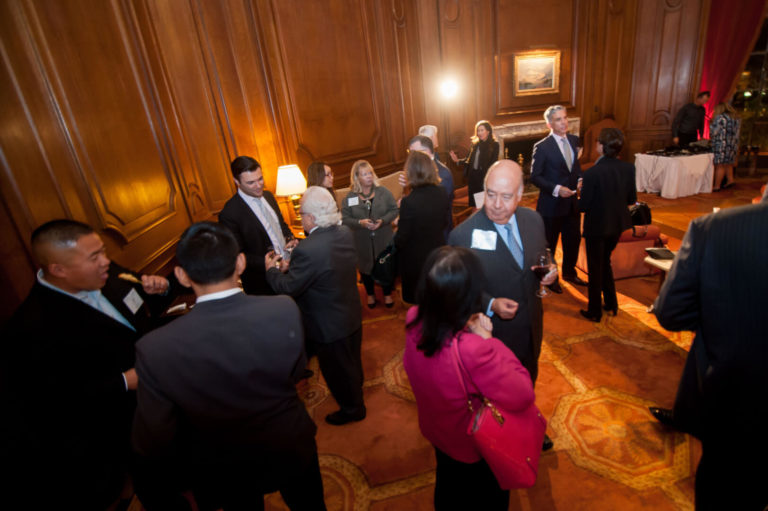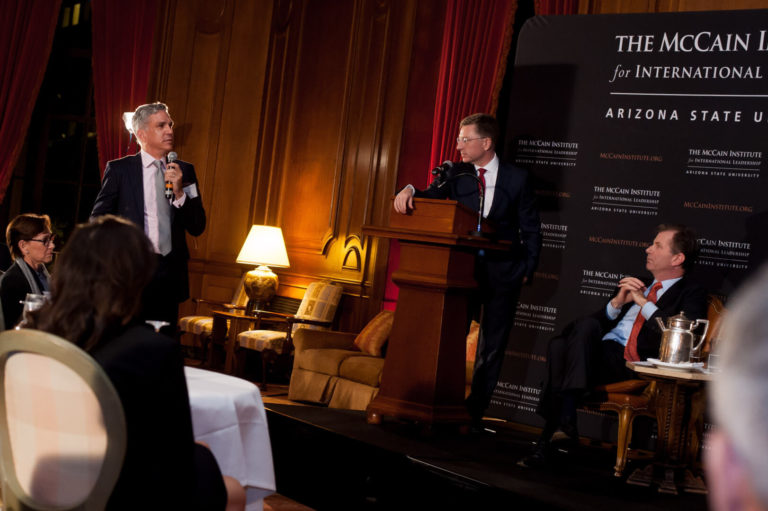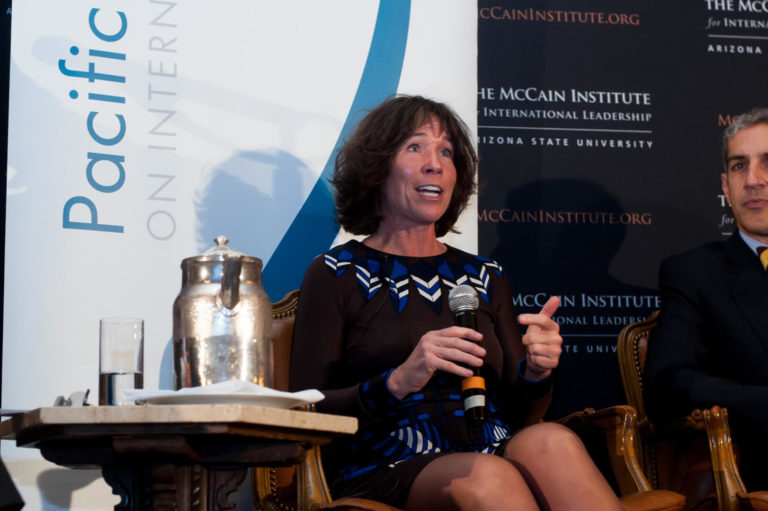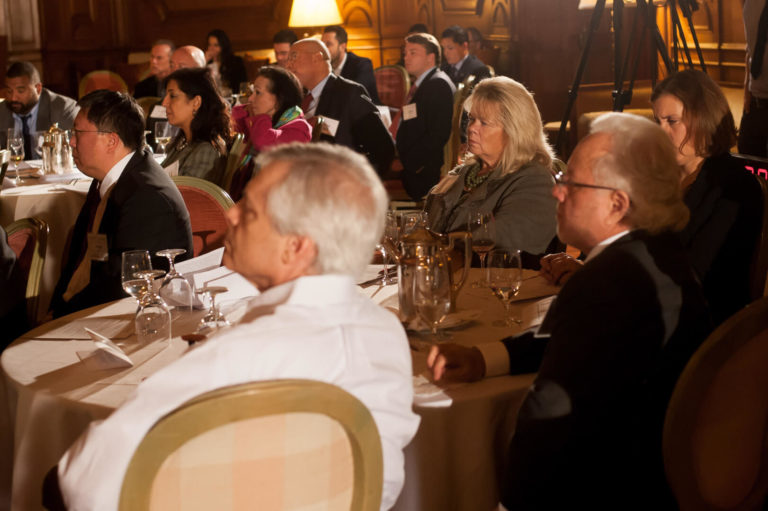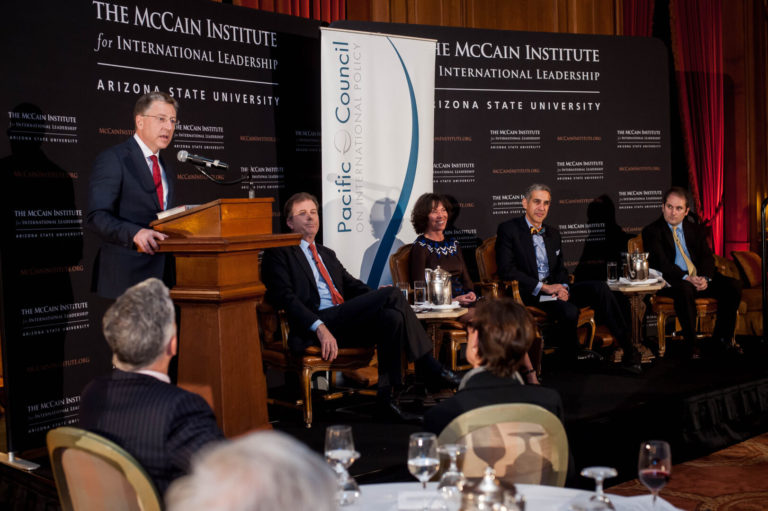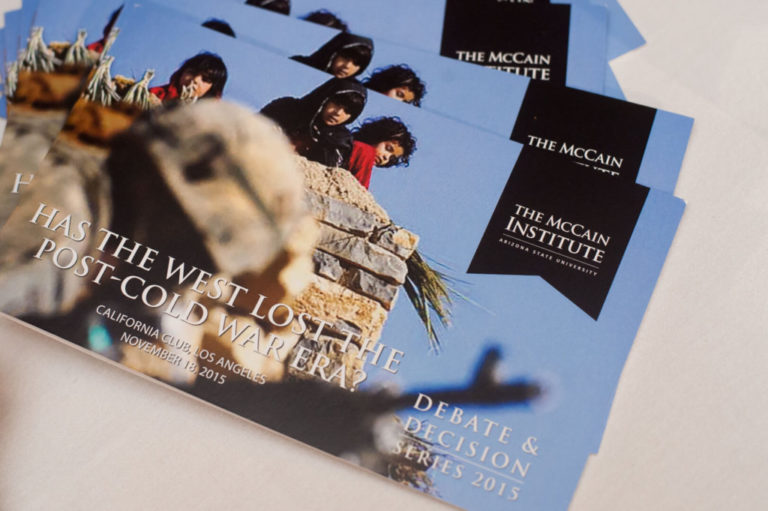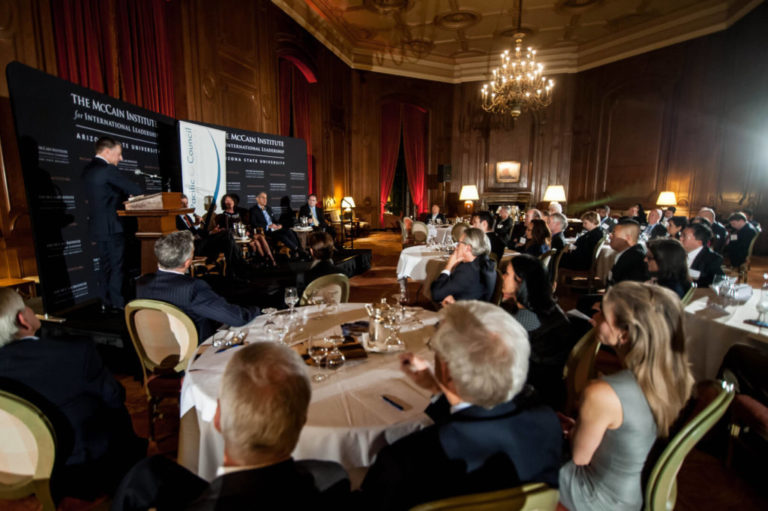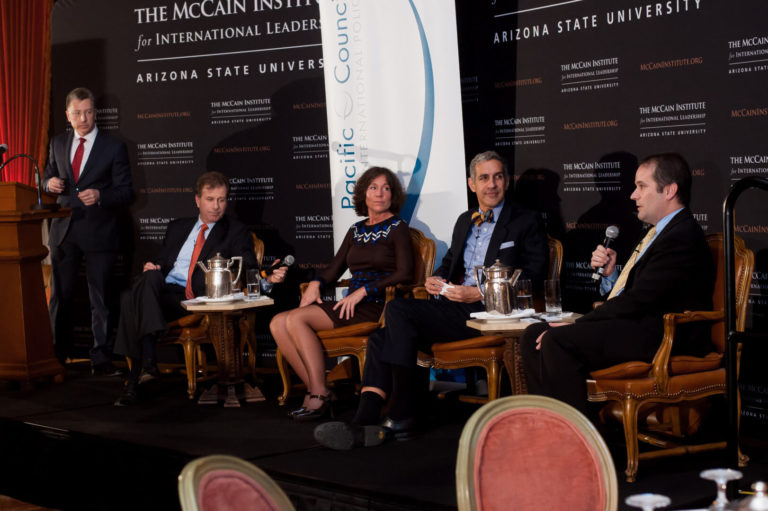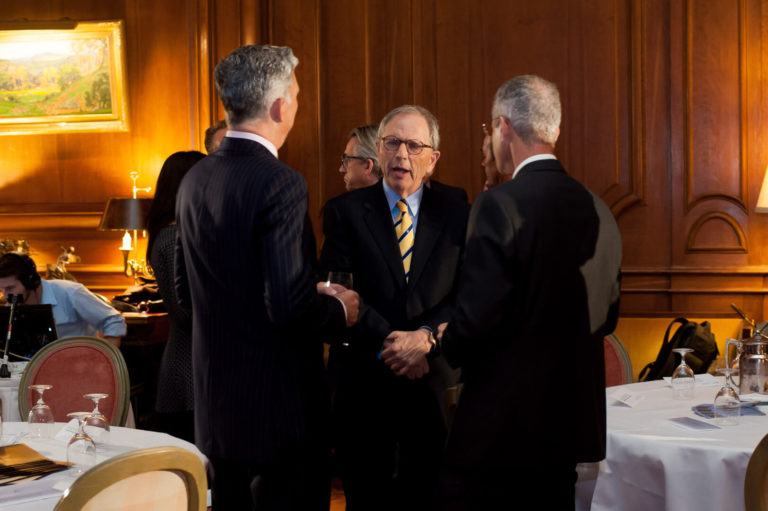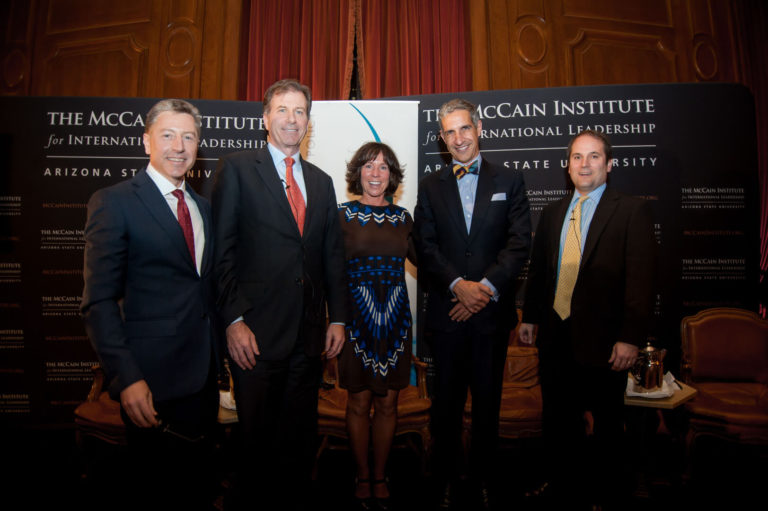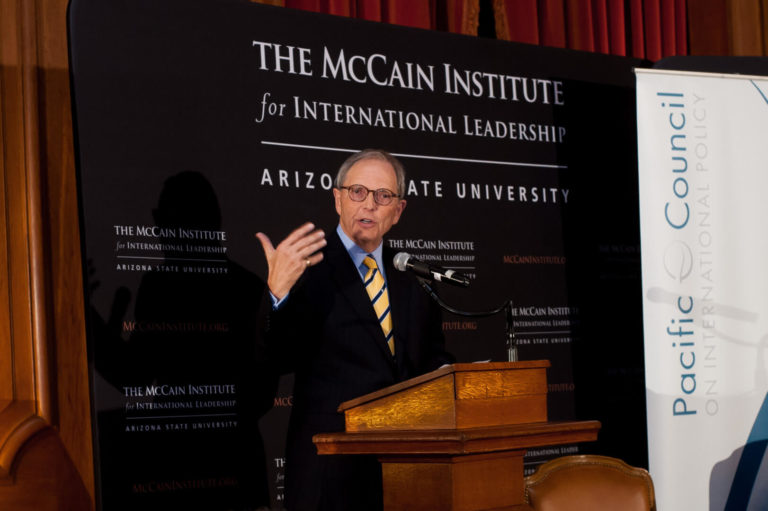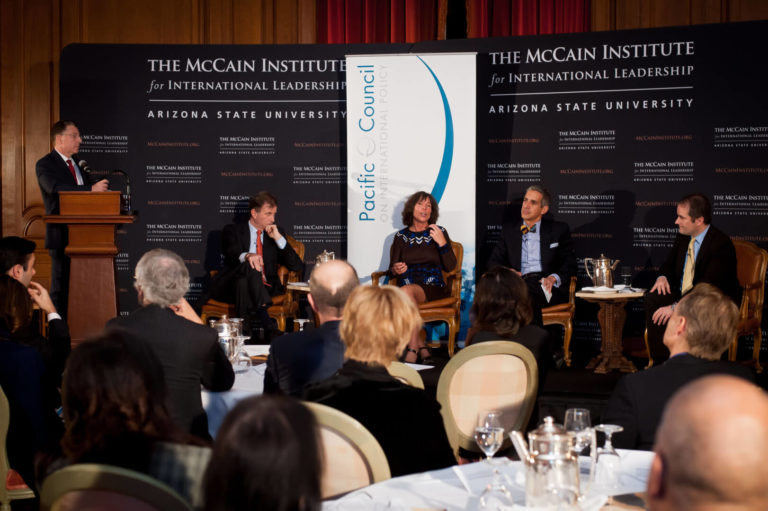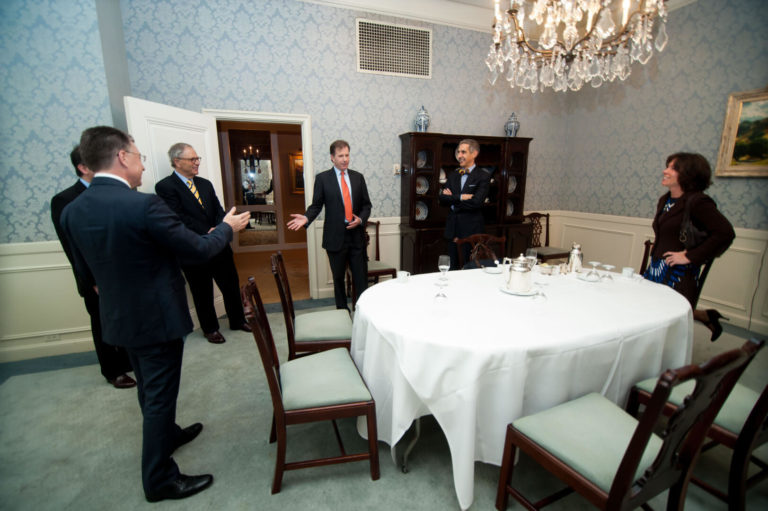Event Summary
Decision Notes
On Wednesday, November 18, 2015, the McCain Institute and the Pacific Council for International Policy hosted the debate, “Has the West Lost the Post-Cold War Era?”
A quarter century after the fall of the Berlin Wall and subsequent collapse of the Soviet Union, global security threats are growing, ISIS and other terrorist groups are expanding, and powers such as Russia and China are asserting themselves on territory from Ukraine to the South China Sea. Europe, already plagued by major demographic, economic, and financial challenges, is now struggling to cope with the largest refugee crisis in a lifetime. The debate, focusing on recent history, analyzed whether or not U.S. policy and the values it embodies will still define the post-Cold War world, or whether those are being supplanted by others.
The West is losing the post-Cold War
- Dr. Mark Moyar, Visiting Scholar, Foreign Policy Initiative
- Dr. D.J. Peterson, President, Longview Global Advisors
The West is not losing the post-Cold War
- Amb. James B. Foley, Former U.S. Ambassador to the Republic of Croatia
- Dr. Kori Schake, Research Fellow, The Hoover Institution
Moderator: Amb. Kurt Volker, Executive Director, the McCain Institute
Arguments that the West is losing
- The United States is ill-equipped to deal with new geopolitical threats. ISIS recruits raise money and fight in a way the United States is struggling to combat. Russia and China are expanding aggressively and the United States does not have the political will or resources to counter them.
- The United States no longer sets the rules of trade. China has eclipsed the United States as the biggest trading nation and the power of implementation is not solely in the hands of the United States.
- Many of America’s closest allies in Eastern Europe and beyond no longer believe that the West will step up to defend them.
Arguments that the West is not losing
- The decline of U.S. influence is an inevitable consequence of the changing nature of power in international politics. Today we inhabit a multipolar world in which many nations hold influence in different regions. The United States has lost some influence to rising powers; however, China and Russia are not “winning” given severe economic challenges and geopolitical weaknesses. Thanks to its many inherent advantages the United States is still in a far better position than any other country.
- U.S. society is dynamic. The structural changes in the world will benefit those societies that have the ability to adapt. The United States has proven time and time again that it can do so.
- America’s key geopolitical threats are fundamentally weak, despite strong posturing. Economically, militarily and politically the U.S. has not been seriously challenged. Many of these rising states recognize that a strong relationship with the United States is essential for their stability, and therefore it will be possible to find common interests moving forward.
Policy Recommendations
Ambassador Foley: The United States can only be as strong abroad as it is at home. We need to put the nation’s finances on a good footing, in order to provide the foundation for a stronger foreign policy.
Dr. Schake: The United States should reform entitlements in order to put federal spending on a solid, sustainable footing.
Dr. Peterson: The United States needs to reform its political system in a way that better accounts for the electorate’s interests and fosters less divisiveness.
Dr. Moyar: The United States should conduct better public diplomacy, and step up military spending to at least 4% of GDP.
SPEAKERS
Dr. Mark Moyar
Visiting Scholar, Foreign Policy Initiative
Dr. D.J. Peterson
President, Longview Global Advisors
Amb. James B. Foley
Former U.S. Ambassador to the Republic of Croatia
Dr. Kori Schake
Research Fellow, The Hoover Institution
